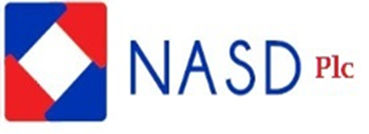
In our newsletter last week, we commenced a series on crowdfunding – a viable capital raising alternative to enterprises seeking to raise capital. The write up provided a brief history on crowdfunding, how it works and the various types that may exist in various jurisdictions.
Link- https://mailchi.mp/4ed74671979a/nasd-otc-weekly-newsletter-1893797?e=1023e75f2b
We understand that the Nigerian economy is becoming increasingly aware and embracing the idea of crowdfunding as a viable funding alternative, especially because of the resultant benefits it portends to enterprises, investors and other stakeholders. Therefore, in a bid to protect the general public when investing in crowdfunding platforms for underlying Micro, Small, & Medium Enterprises (“MSME”s), the SEC recently released a draft of the Proposed Rules on Crowdfunding (the “Rules”).
In this week’s edition on crowdfunding, we shall be reviewing in summary the exposed draft rules and highlights of important sections within the exposed rules in regards to the players, their obligations and limitations.
Summary Review of Exposed Crowdfunding Rules
Definition
The Rules define crowdfunding as the process of raising funds from the public through an online platform (“Crowdfunding Portal”) to finance a project or business. It stipulates that:
- All MSMEs incorporated as a company in Nigeria with a minimum of two-years operating track record can raise funds through a Crowdfunding Portal
- Complex structures, public listed companies and their subsidiaries, companies with no specific business plan or a blind pool cannot raise money through a crowdfunding portal.
Regulated Players
The Rules provides obligations and limitations to the key players in a crowdfunding process: crowdfunding portals and intermediaries, issuers and investors.
- Crowdfunding Portals and Intermediaries:
- The Rules provide that any crowdfunding portal operated, provided or maintained in Nigeria, or those outside Nigeria which actively target Nigerian investors, must be registered with SEC.
- The Rules provide detailed requirements for the portal registration including a minimum paid up capital of ₦100 million.
- The Rules set out obligations for the Crowdfunding Portal, including: conducting due diligence on issuers; ensuring data privacy and protection; filing monthly, quarterly and Annual reports with SEC; among other things.
- Issuer: This is an originator, or creator of the security or investment instrument registered with the intermediary (i.e. the underlying business). Issuers can only make offers on a crowdfunding portal. The Rules also sets out the obligations for all Issuers
- Investor: This is any person or entity that seeks to make, are making, or have made an investment in an investment vehicle. Some investor rights under the proposed Rules are:
- 48 hours grace window to withdraw the investment after offer closes
- Right to withdraw his investment within 7 days of becoming aware of any material adverse change affecting the issuer.
- Right to be refunded debited sums within 48 hours after cancellation or withdrawal.
General Restrictions
The Rules provide some restrictions and prohibitions on crowdfunding portals and intermediaries such as:
- Directly or indirectly sponsoring or soliciting for investors to invest in offers listed on its own platform.
- Cross ownerships between intermediaries and issuers.
- Financing an investor to purchase investment instrument.
- The Rules prescribe a maximum amount (between ₦50 to 100m) that can be raised by different categories of MSMEs except MSMEs operating as digital commodities. Under the Rules an investor can only invest 10% of his annual income on all crowdfunding platforms in a year. However, high net worth and qualified institutional investors have no investment limit.
- Investors cannot transfer their securities for a period of one year except if transferring to the issuer, an institutional investor or a part offer for sale registered with SEC.
- An issuer cannot also list offers on multiple platforms at the same time.
- Any crowdfunding portal or intermediary that fails to comply with these rules (when the Rules are finally issued), will be liable to a fine of not less than ₦1m and the sum of ₦10,000 for every day the violation continues.
Conclusion:
NASD believes this exposure draft is a welcome development and once finalized it will provide reliable channels for MSMEs to raise funds from the investing public through registered crowdfunding platforms while providing protection for the investors. Below is a link to the full SEC crowdfunding rules for exposure:
NASD
Creating liquidity…transparently

